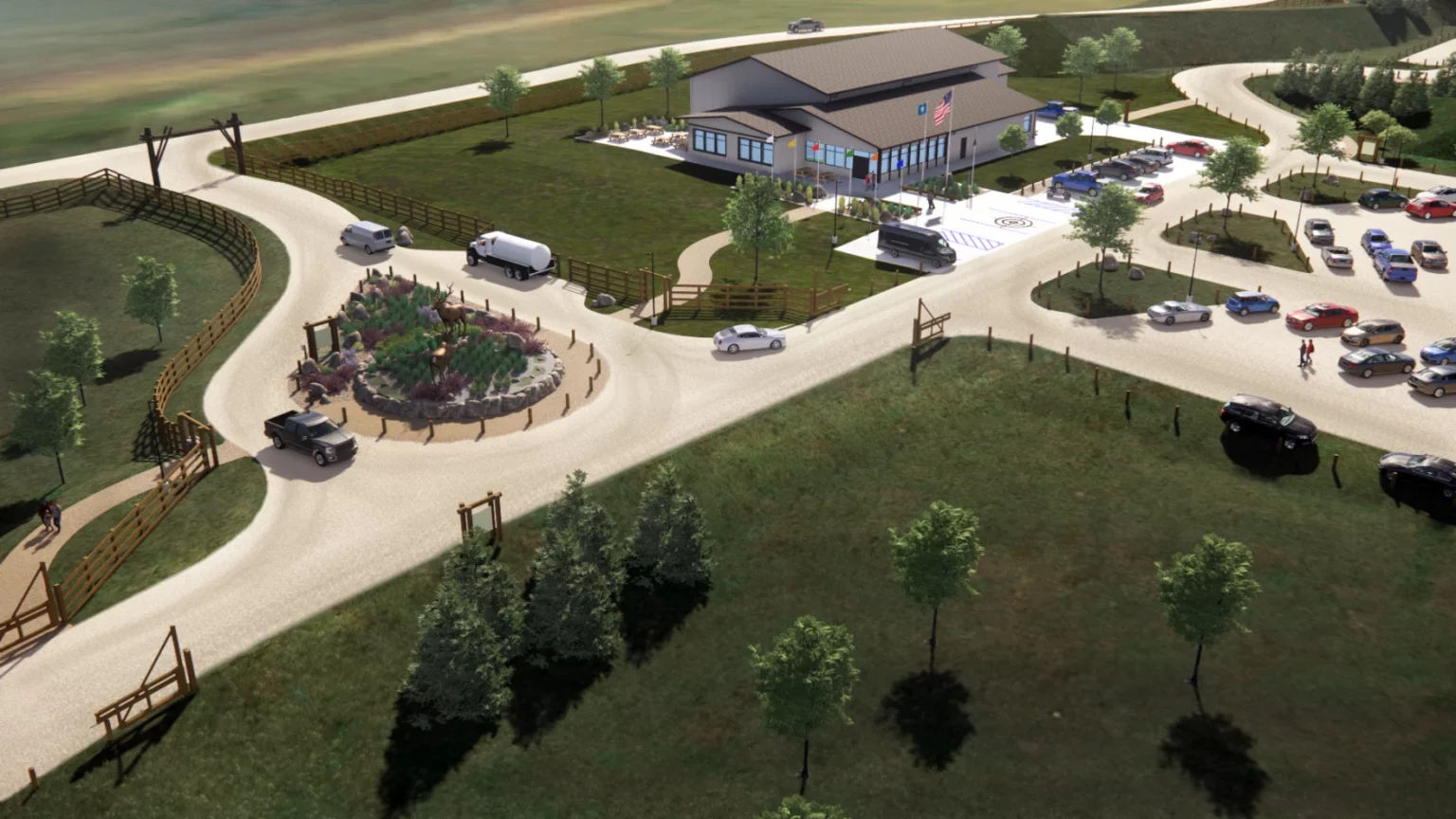
Joshua Haiar, South Dakota Searchlight
While legislators were passing a law in March requiring more information from Republican Gov. Kristi Noem about a fund she controls, Noem was awarding $13.5 million from the fund to a project legislators had declined to financially support.
Some legislators didn’t find out about the spending until this week, when South Dakota Searchlight learned about it and told them.
The money will go toward the construction of a $20 million, state-owned shooting range in a rural area north of Rapid City. The Department of Game, Fish and Parks is also counting on private fundraising to help the project.
Game, Fish and Parks spokesman Nick Harrington said in a statement that the shooting range will “attract new visitors to the state and increase opportunities for firearms-related industries to expand in South Dakota.”
The $13.5 million awarded by Noem is from the Future Fund, which is supported by a tax on employers and spent at the discretion of the governor.
Legislators have denied requests to fund the shooting range with money from the state budget. State Sen. Reynold Nesiba, D-Sioux Falls, said Noem’s decision “demonstrates the need for greater transparency and legislative oversight of the Future Fund.” He called the shooting range a “pet project” for Noem that “excites few outside her political base.”
“The Legislature has rejected this gun range project multiple times,” Nesiba said. “She is using the Future Fund to circumvent the will of the Legislature.”
Bipartisan reaction
The frustration with the governor cuts across the political aisle.
“We already killed the shooting range legislation, because they never presented a business plan. Still haven’t,” said Sen. Ryan Maher, R-Isabel. “How many people are going to run this thing? Clean the bathrooms? Pick up trash? Shell casings? They still have not answered any of that.”

Maher sponsored a bill that was adopted during last winter’s legislative session requiring the Governor’s Office to report twice per year to legislators about Future Fund spending. Noem signed that bill on March 14 — the same month, according to her Governor’s Office of Economic Development, that she authorized $13.5 million from the Future Fund for the shooting range.
Lawmakers contacted this week by South Dakota Searchlight said they have not yet received a Future Fund report as required by the new law.
Maher’s bill arose after Noem faced criticism for other uses of the fund, including at least $5 million she awarded for a workforce recruitment campaign starring herself and $2.5 million for the Governor’s Cup rodeo in Sioux Falls.
The fund is supported by a tax, described by the state as an “investment fee,” that’s collected from employers in conjunction with payroll taxes for unemployment benefits. In 2023, nearly 30,000 South Dakota employers paid $23 million into the Future Fund.
The late Gov. George Mickelson convinced lawmakers to create the Future Fund in 1987. State law says the fund must be used “for purposes related to research and economic development for the state.” The fund is held by the Governor’s Office of Economic Development, but unlike other funds managed by the office, the Future Fund is not overseen by a board of citizen appointees.
A controversial range
The shooting range is being built on about 400 acres, roughly 15 miles north of Rapid City and 25 miles southeast of Sturgis. It’s expected to open in the fall of 2025 and will include areas for long-range shooting, clay target shooting and tactical training. State officials say it will host national shooting competitions.
The Department of Game, Fish and Parks initially said in 2021 that the project would cost about $9.9 million. That grew to $12 million in 2022. Then the state paused the project when calls for bids attracted only one. The project price tag had ballooned to about $20 million by the time the state broke ground in December 2023.
The department said it had received $5.1 million in pledges and donations toward the project as of April.
Some lawmakers opposing previous attempts to fund the range argued state funds should be prioritized for more pressing infrastructure needs. They also said the project should fund itself with private donations, and scale down as needed.
“Why would the state want to compete with privately owned, taxpaying enterprises?” then-Rep. Dean Wink, R-Howes, now a state senator, asked his fellow lawmakers during a House floor debate in 2022. He argued shooting sports opportunities already exist in the area, but programs to address some other public needs do not.
Some landowners near the project, including Matt Kammerer, say it’s unnecessary and will burden local governments with extra infrastructure and public safety costs.
“There are shooting ranges all around here already,” he said. “Nobody needs this.”
Shooting sports enthusiast and Second Amendment advocate King Cavalier, of Sturgis, said providing a public place to exercise gun rights is important to ensuring U.S. democracy continues. Shooting events will result in a sales tax boom, he added, making the complex a smart investment for the state.
